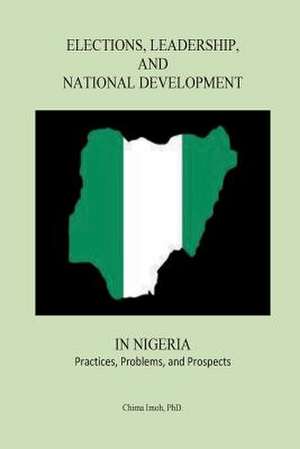Elections, Leadership, and National Development in Nigeria: Practices, Problems, and Prospects
Autor Dr Chima Imohen Limba Engleză Paperback – 25 aug 2014
Preț: 70.78 lei
Nou
Puncte Express: 106
Preț estimativ în valută:
13.54€ • 14.18$ • 11.27£
13.54€ • 14.18$ • 11.27£
Carte disponibilă
Livrare economică 10-24 martie
Preluare comenzi: 021 569.72.76
Specificații
ISBN-13: 9780985479237
ISBN-10: 098547923X
Pagini: 174
Dimensiuni: 156 x 234 x 9 mm
Greutate: 0.25 kg
Editura: Heritage Publishing Co
ISBN-10: 098547923X
Pagini: 174
Dimensiuni: 156 x 234 x 9 mm
Greutate: 0.25 kg
Editura: Heritage Publishing Co





